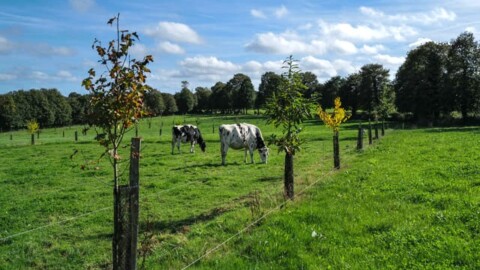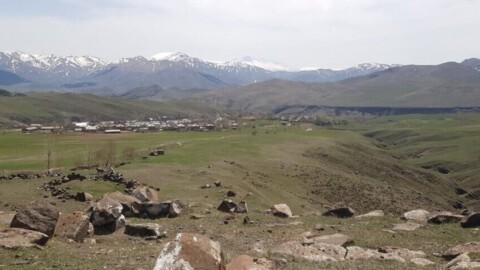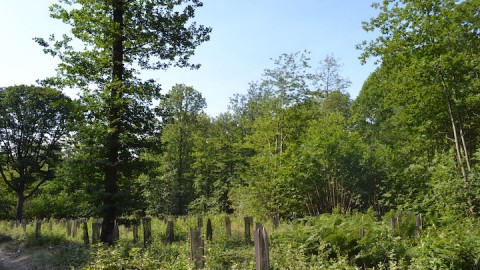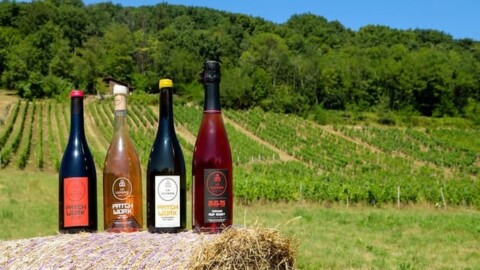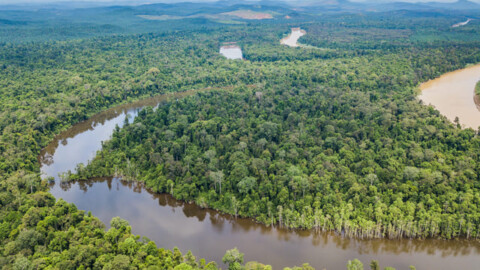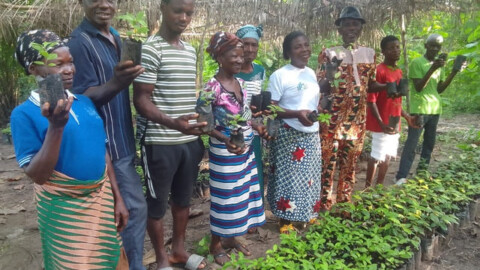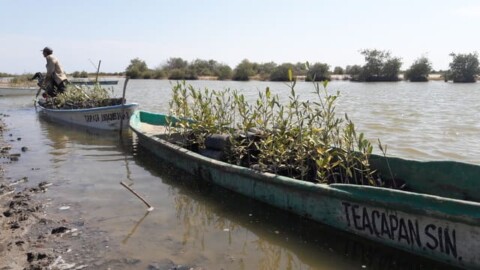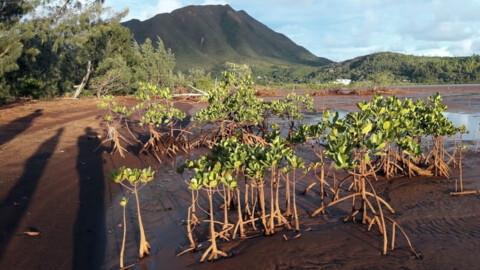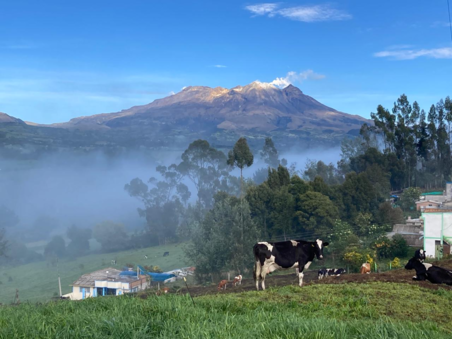
Background & challenges
Colombia is the fourth most deforested country in the world and the second in terms of biodiversity. The reforestation programme is taking place in the Colombian Andes, together with the Pasto farming and indigenous communities in the Nariño department, close to the Ecuadorian border. It aims to preserve the high Andean Forest, and the páramo – an ecosystem unique in the world that provides over 60% of Colombia’s drinking water supply. Yet it is endangered because of climate change and human pressures (land grab for dairy farming and growing potatoes).
Overall, the programme seeks to train and coordinate a network of community nurseries run mainly by women, as well integrating new communities in order to create new nurseries and extend the reforestation programme to their area of influence. The project will enable the region to be reforested by introducing the sylvopastoral model to small-scale dairy farmers (planting trees in their meadows) and restoring water catchment areas.
This is a holistic reforestation programme which, as well as producing seedlings and carrying out planting activities, includes developing economic alternatives to deforestation – i.e. community beekeeping and processing aromatic and medicinal plants – and environmental awareness-raising, especially among children through the ‘My Friends the Trees’ initiative.
To reach its goals, the reforestation programme focuses its action as follows:
- Reforestation: producing and planting native trees to reforest and restore tree cover reforestation and restoration.
- Economic alternatives to deforestation: developing green industries to generate income for communities.
- Raising awareness of the importance of forests and biodiversity: the ‘My Friends the Trees’ project for children aged 6 to 11, plus the annual Sumate al Bosque festival for tall.
So, supporting this project covers many objectives, namely:
- Protecting local biodiversity
- Protecting water resources and ensuring they will continue to supply future generations
- Reducing human pressures caused by land grab for farming while promoting the sustainable socio-economic development of the communities
- Contributing to tackling climate change by storing carbon in the trees planted and soil on the restored plots
- Raising awareness among children from the villages affected by the programme
Project type

Forestry and agroforestry based on the silvopastoral approach
Beneficiaries

The programme has three groups of direct beneficiaries:
- Members of the community nursery network: families with one or more members working in one of the 16 associative nurseries in the network.
- Small landowners and producers who want to grow trees and are committed to maintaining them over time.
- Village councils and small water management entities that plant on their own land to protect a water resource.
Indirect beneficiaries are people living in the region who ultimately depend on the preservation of forests and water resources.
Number of trees

68,250 long lasting trees
Species planted

The nursery network produces over 130 species, almost all of which are endogenous. They include Andean alder Alnus acuminata; pelotillo Viburnum pichinchense; yellow acacia Acacia decurrens; pandala Prunus huantensis; pumamaque Oreopanax sp.; tilo Sambucus nigra peruviana; black elder Sambucus nigra; charmuelan Geissanthus andinus; cedrillo Ruagea glabra; arayan Myrcianthes leucoxyla; puliza Monticalia andicola; and colla Smallanthus pyramidalis
Partner

Impulso Verde
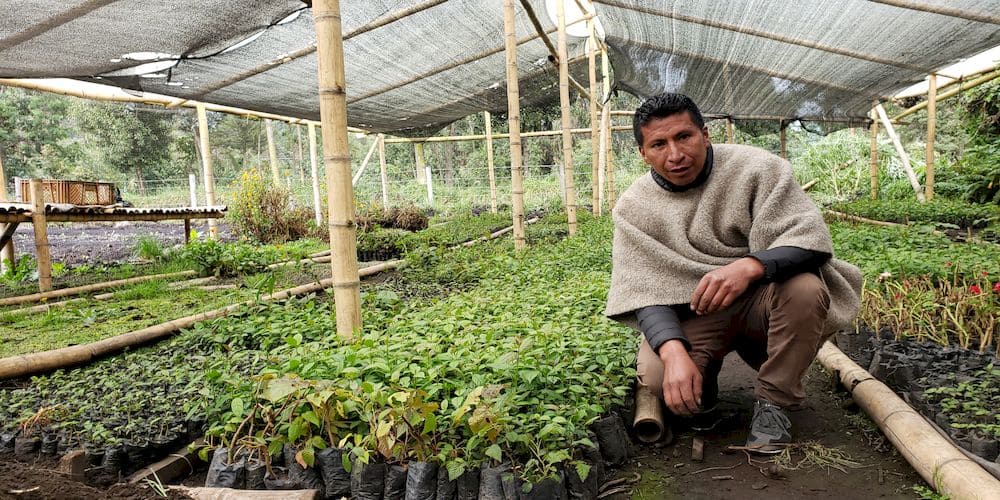
Works timeline
Establishing the beneficiaries, producing seedlings in nurseries and planting activities that run throughout the year in Nariño, except in July and August, when there is a greater risk of morning frosts.
- Year 2025 to 2027:
- Producting plants in nurseries
- Awareness-raising in communities
- Establishing the treebeneficiaries
- Planting in the communities
- Geolocating plantations
- Year 2028 to 2030:
- monitoring and maintaining trees
Planting partner
The Impulso Verde Kuaspue Foundation (from pasto: “seed of water”) works alongside peasant and indigenous communities to reforest and restore ecosystems through a community development model that is environmental, social, and economic. The Impulso Verde team is Colombian-French-Belgian and has been developing a vast reforestation programme since 2016 in the Colombian Andes, Nariño department. More than 550,000 native trees have been planted, with a network of community nurseries now consisting of 16 associations and 201 families involved.
The trees are planted in small producers, dairy associations, or community plots in partnership with the town halls, indigenous authorities, and other local actors.
At the same time, Impulso Verde carries out awareness-raising activities, particularly with children, and develops economic activities that are alternatives to deforestation and that enhance biodiversity, such as beekeeping or the transformation of aromatic and medicinal plants into cosmetic products.
Budget
The total budget to be raised is €409,500, i.e. €6.00 per perennial tree planted, broken down as follows:
- 93% allocated to the planting project, i.e. €5.58 per tree
- Purchasing trees from nurseries: €0.48
- Purchasingproduction materials from nurseries: €0.24
- Logistics costs: €0.41
- Technical training and capacity building for the nursery network: €0.66
- Project coordination, data collection, monitoring, and communication: €0.88
- Annual monitoring of plantations over the 6 years of Impulso Verde: €0.39
- Green Value Chain Fund: economic alternatives to deforestation: €0.50
- Raising awareness of forest preservation among the local population: €0.20
- Provision for risks: €0.24
- Administration and management costs: €0.49
- A Tree For You collection, monitoring, and communication costs (13%): €0.78
- and 7% (€0.42) for A Tree for You’s overheads
They donated to this project :



